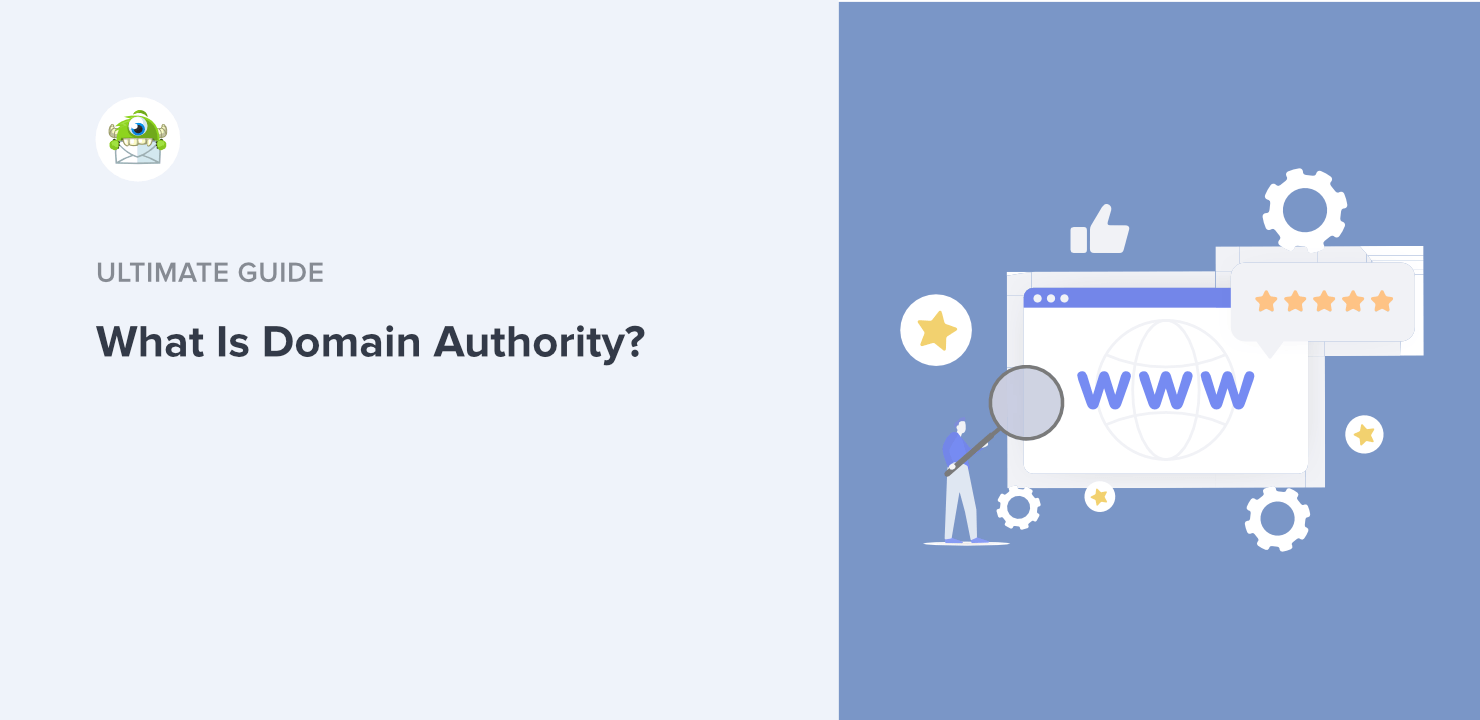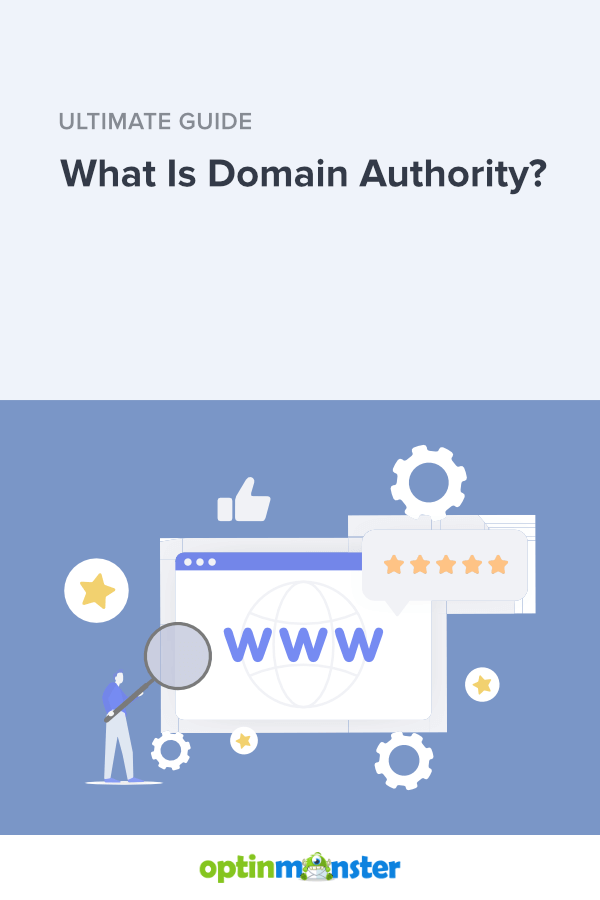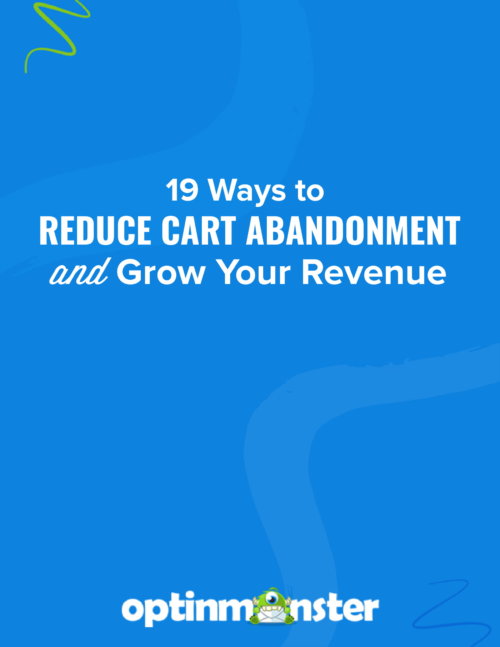If you hang around SEOs long enough, you’ll find that one term will come up over and over again: Domain Authority.
But what is it? Is it important? And, if it is, where do you learn how to improve domain authority?
In this post, we’re going to answer your questions and teach you how to improve your domain authority through proven, time-tested techniques.
Table of Content:
- What Is Domain Authority?
- Why Is Domain Authority Important?
- Page Authority vs. Domain Authority
- How Is Domain Authority Calculated
- How To Increase My Domain Authority
- How Do I Find My Domain Authority
- What Is a Good Domain Authority?
What Is Domain Authority?
Domain Authority (DA) is a search engine ranking score developed by Moz that predicts how likely a website is to rank on search engine result pages (SERPs). The Domain Authority score ranges from one to 100, with higher scores corresponding to a greater likelihood of ranking.
DA is often used by marketers as a comparative metric to gauge the potential search engine ranking strength of a website relative to competitor websites. It can also help in identifying the growth of a website’s backlink profile over time.
However, since it’s a proprietary metric, it should be used as a comparative tool rather than an absolute indicator of search engine performance.
Why Is Domain Authority Important?
Domain Authority is important for several reasons, especially in the context of Search Engine Optimization (SEO) and digital marketing. Understanding its significance can help in strategizing for better online visibility and performance. Here are key reasons why Domain Authority is considered important:
- Benchmarking Against Competitors: DA provides a quick and easy way to gauge the potential ranking strength of your website against competitors. By comparing DA scores, you can identify how your site stacks up against others in your industry, which can inform your SEO strategy.
- Evaluating Link Building Efforts: Since DA is influenced by the number and quality of inbound links, a rising DA score can indicate that your link-building efforts are effective. It helps in understanding whether your strategies for acquiring new links are working towards enhancing your site’s perceived authority.
- SEO Strategy Planning: A higher DA score suggests a greater likelihood of ranking higher in SERP results, which can lead to increased organic traffic. Knowing your DA can help you prioritize SEO tasks, such as content creation or link acquisition, to improve your site’s overall search engine performance.
- Monitoring Website Health: Changes in your DA score can signal shifts in your site’s health, especially in relation to your link profile. A significant drop, for example, might indicate lost links or penalties that need to be addressed.
- Content Marketing Insights: Websites with higher DA are often seen as more authoritative and trustworthy. This perception can make other sites more likely to link to your content, strengthening your content marketing efforts. Understanding your website’s Domain Authority can help you leverage your site’s authority to secure guest posting opportunities or collaborations.
- Investment and Partnership Opportunities: For businesses, a high DA can attract potential investors or partners who see the site’s strong online presence as a valuable asset. It can also be a selling point for advertising space or sponsorships.
Page Authority vs. Domain Authority
Page Authority (PA) and Domain Authority (DA) are both metrics developed by Moz to predict the likelihood of a webpage or website ranking in SERPs. While they are related, they measure different aspects of SEO strength.
Here’s a breakdown of the differences between Page Authority and Domain Authority:
Page Authority (PA)
- Scope: Page Authority measures the ranking strength of a single webpage.
- Calculation: PA is calculated based on data from Moz’s web index and includes link counts, MozRank, MozTrust, and dozens of other factors. Like DA, it uses a machine learning model to find the algorithm that best correlates with rankings across the thousands of SERPs that they predict.
- Use Case: PA is useful for comparing the strength of individual pages within a website or against pages on other websites. It can help you understand how likely a specific page is to rank in SERPs and is particularly useful for assessing the effectiveness of content or SEO strategies at the page level.
Domain Authority (DA)
- Scope: Domain Authority measures the overall ranking strength of an entire website or domain.
- Calculation: DA is calculated by considering multiple factors, including linking root domains and the total number of links, into a single DA score. This score is derived from a machine learning model that predicts a website’s likelihood to rank on SERPs based on its link profile.
- Use Case: DA is used to compare one site’s likelihood to rank in search results against another’s. It’s a broad measure of a site’s overall SEO strength and is useful for benchmarking and tracking the ranking potential of a website over time.
Key Differences
- Specificity: PA is specific to individual pages, while DA applies to entire domains or subdomains.
- Application: PA can help in optimizing individual pages or understanding why certain pages perform well. DA is more about understanding the competitive strength of an entire site and guiding strategic decisions at a higher level.
- Comparative Use: Both metrics are best used as comparative tools rather than absolute indicators of success. They are more valuable when comparing your pages or domain against competitors’ rather than as standalone values.
Both Page Authority and Domain Authority offer valuable insights into SEO and ranking potential, but they serve different purposes.
PA is best for page-level analysis and optimization, while DA provides a broader view of a site’s overall strength and competitiveness. Using both metrics together can give a more comprehensive understanding of a website’s SEO performance and potential areas for improvement.
Not to be confused with PageRank, an algorithm used by Google Search to rank web pages in their search engine results. Named after Larry Page, one of the founders of Google, PageRank was one of the first algorithms used by the search engine to determine the importance of a webpage.
How Is Domain Authority Calculated
Domain Authority is calculated by analyzing various factors, such as the number of unique linking domains to a website and the total volume of links included in a singular DA score. This metric is a tool for comparing websites’ relative “ranking strength” over time or against each other.
It’s crucial to note that DA does not directly influence Google’s search results, as it is not a SEO ranking factor in Google’s algorithms.
Following the update to Domain Authority 2.0 in early 2019, the computation of a domain’s DA score is derived from a machine learning model’s estimations of the frequency of a domain’s appearance in Google’s search results. If domain A is more likely to show up in Google’s search results compared to domain B, domain A’s DA is expected to be higher than that of domain B.
Since DA calculations are rooted in machine learning, fluctuations in your site’s score are normal, as the algorithm adjusts based on new, removed, or altered data points. For example, should a site like facebook.com gain a billion new links, the DA of all other sites would decrease compared to Facebook’s.
This is because domains with extensive and authoritative link profiles, such as Facebook, occupy more high-DA positions, leaving limited space at the top of the scale for other domains with smaller link profiles.
Consequently, increasing your DA score from 20 to 30 is considerably more feasible than elevating it from 70 to 80. Hence, using Domain Authority as a relative measure rather than an absolute benchmark is more effective.
How To Increase My Domain Authority
Increasing your Domain Authority involves improving your overall SEO and creating a website that excels in its content quality, user experience, and link profile. While DA itself is not a ranking factor for search engines, the practices involved in improving it can lead to better search engine rankings. Here are strategies to increase your Domain Authority:
1. Improve Your Off-Page SEO
- Build High-Quality Backlinks: Focus on getting do-follow links from high-authority sites in your niche. Use guest blogging, influencer outreach, and the creation of shareable content to earn these links.
- Disavow Bad Links: Use tools like Google’s Disavow Tool to remove spammy or harmful links that could negatively impact your DA.
2. Optimize On-Page SEO
- Use SEO Best Practices: Ensure each page has a title tag, meta description, headers, and images with alt text. Use keywords naturally and effectively throughout your content.
- Improve Internal Linking: Create a logical link structure within your site to help search engines and users navigate your content easily. This also helps distribute page authority throughout your site.
3. Ensure Your Website is Mobile-Friendly
- Responsive Design: With the increasing use of mobile devices, having a website that looks good and is responsive on all devices is crucial for user experience and SEO.
4. Increase Page Speed
- Optimize Images: Use compressed images that load faster.
- Minimize Code: Reduce CSS, JavaScript, and HTML code to increase page loading speed.
- Use a Content Delivery Network (CDN): CDN providers distribute your content across multiple servers worldwide, reducing the load time for users no matter where they are.
5. Publish High-Quality Content
- Create Valuable Content: Publish informative, engaging content that addresses your audience’s needs. High-quality content is more likely to be shared and linked to.
- Regular Updates: Keep your website fresh with regular updates and new content to engage visitors and encourage repeat traffic.
6. Social Media Engagement
- Promote Your Content: Use social media platforms to share your content and engage with your audience. While social signals are not a direct ranking factor, they can increase visibility and backlinks.
How Do I Find My Domain Authority?
There are plenty of SEO tools which are also decent domain authority checkers. You can find your domain authority score using Moz’s Link Explorer tool.
Simply enter your website and it will show you your score, how many links you have, how many of those links come from unique root domains, and how many keywords you’re ranking for as a result.
As you can see, OptinMonster has a domain authority score of 73. It has 292,400 total backlinks coming from 10,500 root domains.

Moz’s Domain Authority’s closest competitor is Ahrefs.
Instead of calling it domain authority, they refer to their authority metric as domain rating. It’s the same thing, different name.
On Ahrefs, OptinMonster’s score is 88. It has 885,000 total backlinks coming from 35,900 root domains.

Similarly, Semrush has an Authority Score that measures a domain or web page’s overall quality and SEO performance.
It’s important to note that each tool uses its own algorithms and scoring systems, which results in the different scores. They also have their own crawlers, which results in the different reported backlinks and keyword rankings.
Now you’re probably wondering…
Is 73 a high DA score? Where did the DR of 88 on Ahrefs come from? What is considered a high domain authority, and what is considered a weak domain authority?
What Is a Good Domain Authority?
A “good” Domain Authority score depends largely on the context, including the industry you’re in, the size of your website, and the DA scores of your competitors. Since Domain Authority is a comparative tool rather than an absolute measure of your site’s search engine ranking ability, what constitutes a good DA varies.
Industry and Competition
- Comparative Analysis: A good DA score is one that is higher than or comparable to the DA scores of the websites you compete with in SERPs (Search Engine Results Pages). For instance, if your competitors have DA scores in the range of 30-40, a score within or above this range can be considered good for your website.
- Niche Specific: Some niches or industries might naturally have higher or lower DA scores on average. Highly competitive industries, like finance or health, often have websites with higher DA scores due to the intense competition and the high quality of content required.
Website Size and Age
- Newer and Smaller Websites: For a new or small website, a lower DA score is common and expected. As your website grows in content, user engagement, and backlinks, your DA will likely increase.
- Established Websites: Larger, more established websites often have higher DA scores due to their extensive link profiles and long-standing presence on the web.
General Guidelines
- DA 1-30: Often seen with new or small websites. Improvements can be made through SEO and content marketing strategies.
- DA 30-50: A moderate score indicating that your website is making progress in terms of SEO and has a growing backlink profile.
- DA 50-60: A good score for most websites, indicating a strong link backlink profile and the potential for competitive performance in SERPs.
- DA 60-100: An excellent score, typically seen with very large, established brands. It indicates a very strong backlink profile comprising of external links from other higher domain authority sites and high competitiveness in search rankings.
There you have it! You now should have a much better understanding of domain authority and its importance to your site’s rankings. Plus, you learned how to improve domain authority through high-quality backlinks.
Did you know: Poorly designed popups can ruin user experience and hurt your Google rankings. Join OptinMonster today to get access to gorgeous, professionally-designed, fully customizable popups and optins that can help you make your visitors’ experiences on your site even better!
More on SEO:
- Discover the Best SEO Plugins for WordPress: Expert Picks!
- Social Media SEO: How To Incorporate Social Media Into SEO Strategy
- SEO Best Practices: Simple Routines for Ultimate Success
- 15 SEO Tips To Help You Boost Your Traffic & Rankings in 2024
- On-Page SEO Checklist: How to Fully Optimize Your Posts
- How To Choose the Right Keywords for SEO in 5 Steps
- 50+ Powerful SEO Statistics That Will Help You Boost Traffic to Your Site
- Shopify SEO Guide: Your Ultimate Step-by-Step Guide to Rank #1















Add a Comment